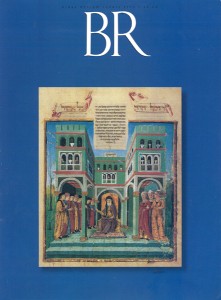
I propose to raise two seldom-asked questions about the Book of Job: Why is there a Book of Job? And what does it do to you when you read it; what is its effect on you as a reader?
By asking why there is a Book of Job, I do not intend to deal with the historical circumstances of the book’s composition, such as the identity of the author and the date the book was written. Rather, I mean to inquire as to the necessary conditions for the book’s existence, implicit in the text itself. I am interested in identifying what is necessarily implied about the author and about the social setting of the text. I want to draw inferences from the text about the circumstances of its origin. What are the social, economic and political realities that the text itself points to?
The curious thing is that, in the vast scholarly literature, no one seems to have taken into account that the book is in fact a text, or to ask what brings a text of this kind into being, or what it signifies that a text of this character existed in ancient Israel. For most scholars, the Book of Job is a transcript of the author’s mind, a window on the ancient Israelite thought-world, a discussion of a theological problem—anything other than a writing, a product, a text.
Already a library member? Log in here.
Institution user? Log in with your IP address.

